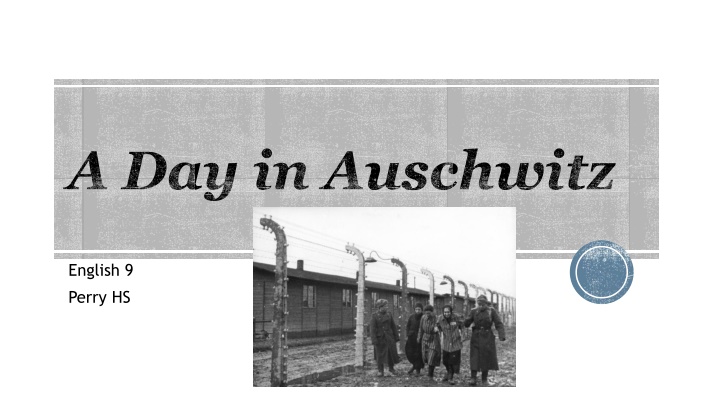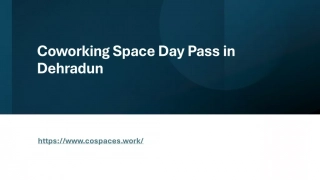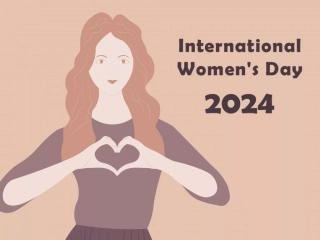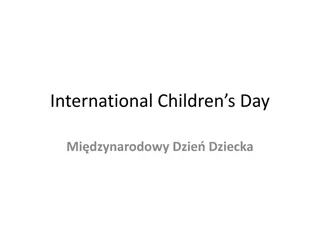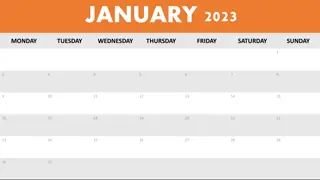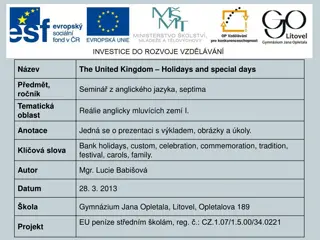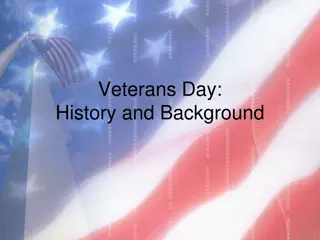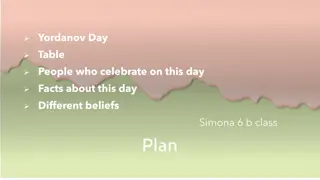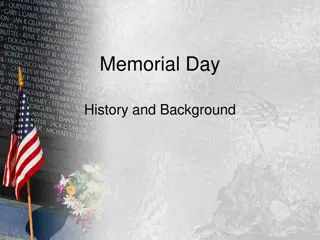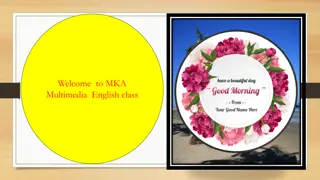A Day in Auschwitz Documentary
Delve into the harrowing world of Auschwitz through a compelling documentary and educational activities like Cornell notes and reflective responses in a Night Booklet. Explore the experiences of prisoners, their survival strategies, and the poignant stories of individuals such as Kitty Hart-Moxon and Elie Wiesel. Additionally, engage in insightful discussions on genocides in various countries. This comprehensive educational approach aims to deepen understanding and promote empathy towards historical events.
Download Presentation

Please find below an Image/Link to download the presentation.
The content on the website is provided AS IS for your information and personal use only. It may not be sold, licensed, or shared on other websites without obtaining consent from the author.If you encounter any issues during the download, it is possible that the publisher has removed the file from their server.
You are allowed to download the files provided on this website for personal or commercial use, subject to the condition that they are used lawfully. All files are the property of their respective owners.
The content on the website is provided AS IS for your information and personal use only. It may not be sold, licensed, or shared on other websites without obtaining consent from the author.
E N D
Presentation Transcript
A Day in Auschwitz English 9 Perry HS
Watch the Documentary Click on the following link to view: https://www.youtube.com/watch?v=mZYgzW2fS0o
Take Cornell Notes Write your name, period and date. Write the topic/objective: Auschwitz Documentary Write the essential question: What was it like to be a prisoner at Auchwitz? Write questions/topics on the left column Record details on the right column
Respond in the Night Booklet Answer the following questions: What was it like to be a prisoner at Auschwitz? What did prisoners need to do to try to survive? What was the most shocking thing you learned about prisoner life in the camp? How was Kitty Hart-Moxon s Auschwitz story similar to Elie Wiesel s story? How is it different?
13 November 2015 Fill out agenda Clubs: Bring everyone s Memory Keepers to the front table. I will finish grading this weekend; you will get them back Monday. Don t forget rubric!! Extra credit opportunity: So much of what we ve learned about rhetoric can be found in our everyday world. For 10 points extra credit, find an ad from a magazine, newspaper, or printed from the web that employs a rhetorical strategy/strategies (from your chart) that clearly builds ethos/pathos/logos. Print it out or cut it out (not optional) Neatly glue onto a colored sheet of paper/construction paper (not optional and must be done BEFORE you enter class) If your sample is used, you will receive an additional 5 points extra credit THANKS!!!!
12 November 2015 Fold a blank sheet of paper into 4ths Write your name and period top left Label each square table 1, table 2, table 3, etc. all the way to table 8 For each square write the genocide that each table was assigned top center In the box, write as many IMPORTANT facts about as you can You will be given a grade based on how many significant facts you write A=9-10 facts each genocide/square (NOT SLIDE!) B=8 C=7 D=6 F=5 or less **You will be given 10 minutes to practice your presentations
Table 1: Rwanda Table 2: Sudan/Darfur Table 3: Uganda Table 4: Democratic Republic of Congo Table 5: Cambodia Table 6: Bosnia Table 7: Armenia Table 8: Guatemalan Civil War
